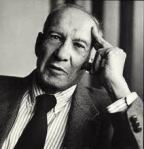“In a knowledge economy where skill is based on knowledge, and where technology and economy are likely to change fast . . . the only meaningful job security is the capacity to learn fast.”
Peter F. Drucker, The Age of Discontinuity
——————–

First, let’s start with three paragraphs from this article. And, please do not take this as a political post. It’s really a “where do you put your future efforts” post. Here’s the article: GOP, don’t lose out on the energy revolution by Arnold Schwarzenegger and Per Espen Stoknes.
History is littered with examples of thought leaders who did not embrace coming technological shifts. The consequence was simple: You get left behind and become less and less relevant.
In 1980, when IBM considered the growth of the personal computer to be peripheral to the mainframe computer industry, the company made the biggest blunder in its history. It continued to direct investments to mainframe technology because it missed the fact that the market was shifting to a distributed model. Today, in retrospect, it’s easy to see the company’s error in judgment.
According to financial analysts such as Citibank, Goldman Sachs, Deutsche Bank, HSBC, Bernstein Research, and leading investors, it’s now very obvious: Creative destruction will inevitably flow through the energy economy in the coming decade, and innovation in renewables will do to coal and oil what cars did to the horse and carriage industry, what digital cameras did to Kodak, PCs to IBM, mobile phones to fixed-line telecoms, Amazon to bookstores and Netflix to Blockbuster.
The ripple effects of this are many and varied. For example, as I write this, the price of oil has dropped to the $36/$37 per barrel range. (In June, 2014, it was $111 per barrel. That’s when the slide started). Now, just imagine that you are a skilled, best of the best, oil field worker. You might be ok… for a while. But if you are not the very best, (and, most people are a little below the “very best” designation), you are probably now looking for a new line of work. And you are doing this through no fault of your own.
Or, imagine that you were one of those researchers seeking to improve the mainframe computer at IBM in 1980. Your job was in more jeopardy than you realized.
Here’s the deal. You should be very good at your job, and then get even better. Learn all you can. Improve your skills. But, sometimes, your skills become obsolete.
And, it really isn’t your fault. You were hired to do a job. Your skills were a good fit for that job. And, then, the whole terrain changed.

And so, to quote Peter Drucker, “the only meaningful job security is the capacity to learn fast.” He understood this, and followed this personally (from this article):
Peter Drucker personally eschewed the designation “guru” — which suggests one who counsels– casting himself rather as a student. True to form, Drucker every year assigned himself a topic about which he knew nothing and made it the subject of intense study.
So, put you efforts into the future: be at least near the front of the pack on what to work on next; keep learning; and don’t become less and less relevant.
That about sums it up.
